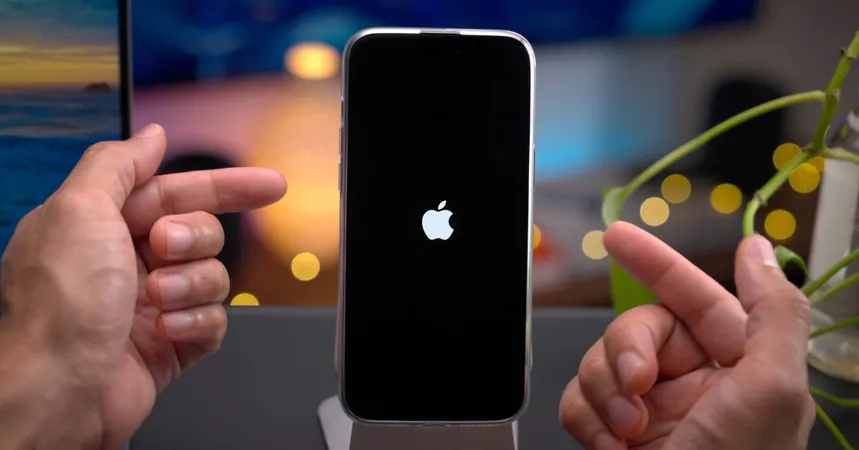
iOS 18.1 Introduces 'Inactivity Reboot' Security Feature: A Boon for Users, But a Headache for Law Enforcement
2024-11-11
Author: Mei
Introduction
In a recent development within Apple's mobile software landscape, the release of iOS 18.1 has unveiled an intriguing security enhancement dubbed the “Inactivity Reboot.” This new feature aims to bolster user security by automatically rebooting iPhones after four days of inactivity, a decision that has sparked conversations across both user and law enforcement communities.
Security Researcher's Highlight
Initially highlighted by security researcher Jiska Classen on social media platform Mastodon, the Inactivity Reboot feature was prompted by concerns expressed by law enforcement officials regarding automatic device reboots. Contrary to their speculations that these reboots were a result of iPhones communicating covertly with each other, it was clarified that the reboots are a deliberate security mechanism implemented by Apple.
Impact on Law Enforcement
The Inactivity Reboot feature enters into effect when an iPhone has not been unlocked for a specified duration of four days. After such a period, the device reboots automatically, which then locks it in the Before First Unlock (BFU) state. This transition poses significant challenges for law enforcement agencies when attempting to unlock devices for forensic examinations, as they often find that iPhones are easiest to access in the After First Unlock state.
Experts Weigh In
This new security protocol has understandably raised concerns among law enforcement personnel, who argue that it may hinder criminal investigations. However, experts in the field are emphasizing the importance of this feature for personal security. Cryptography expert Matthew Green from Johns Hopkins University weighed in on the matter, noting that the greater threat usually stems from opportunistic thieves rather than law enforcement. He states, "This feature means that if your phone gets stolen, the thieves can’t nurse it along for months until they develop the tech to crack it. A reboot after a reasonable inactivity period strengthens security, making it a sound choice for everyday users."
Conclusion
While the immediate backlash has come from law enforcement circles frustrated by the hurdles the Inactivity Reboot presents, it undeniably adds an extra layer of security for honest users. In an increasingly digital world, where the value of our devices is constantly threatened by theft and unauthorized access, features like iOS 18.1's Inactivity Reboot could easily prove to be a game-changer in safeguarding personal data.
Future Implications
As Apple continues to refine its approach toward user privacy and security, it invites a broader discussion on the balance between effective law enforcement and protecting individual rights. Will this innovation inspire other tech giants to follow suit in enhancing user-centric security? Only time will tell, but one thing is certain: Apple's latest move is making waves in the mobile tech waters. Stay tuned for more updates as this story develops!


 Brasil (PT)
Brasil (PT)
 Canada (EN)
Canada (EN)
 Chile (ES)
Chile (ES)
 España (ES)
España (ES)
 France (FR)
France (FR)
 Hong Kong (EN)
Hong Kong (EN)
 Italia (IT)
Italia (IT)
 日本 (JA)
日本 (JA)
 Magyarország (HU)
Magyarország (HU)
 Norge (NO)
Norge (NO)
 Polska (PL)
Polska (PL)
 Schweiz (DE)
Schweiz (DE)
 Singapore (EN)
Singapore (EN)
 Sverige (SV)
Sverige (SV)
 Suomi (FI)
Suomi (FI)
 Türkiye (TR)
Türkiye (TR)